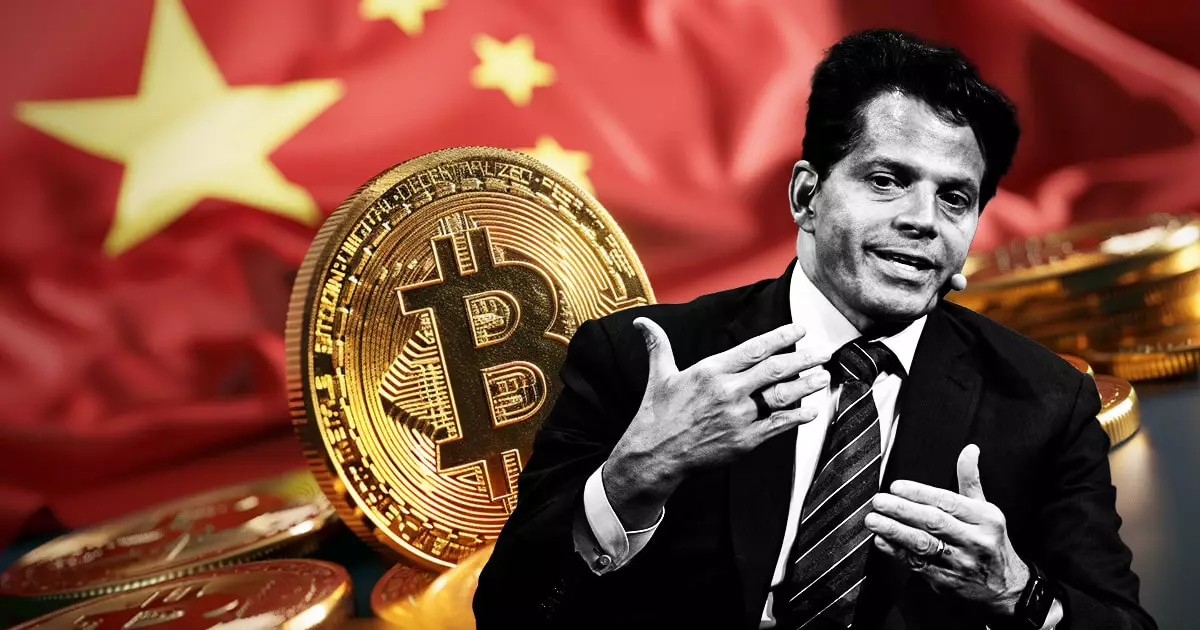As Bitcoin continues to carve out its niche in the global financial system, recent remarks by Anthony Scaramucci at the Bitcoin MENA 2024 conference highlight a significant shift in geopolitical dynamics regarding the cryptocurrency. Scaramucci projects a possible return of China to Bitcoin mining, alongside an integration of Bitcoin into its national reserve assets. His insights spark a critical examination of how various countries may reshape their economic strategies in response to Bitcoin’s growing institutional legitimacy.
Scaramucci’s assertion stems from an evolving perspective towards Bitcoin, particularly within the United States, where there’s a burgeoning acceptance of the digital currency. He argues that as the U.S. pivots toward a more favorable stance on Bitcoin, other nations may find it increasingly challenging to remain aloof from the cryptocurrency. This sentiment echoes the growing recognition among governments that integrating Bitcoin into national reserves could serve as a strategic asset rather than a mere speculative endeavor.
Countries like Russia and Brazil are exploring Bitcoin integration into their financial frameworks, motivated by a desire to diversify their holdings amid geopolitical pressures. For instance, a Russian lawmaker proposed creating a national Bitcoin reserve, positioning it as a countermeasure against Western sanctions. Similarly, Brazil has taken steps to allocate a portion of its official reserves to Bitcoin, demonstrating not only a willingness to embrace cryptocurrency but also an understanding of its potential utility in stabilizing national economies. This trend underscores a global shift towards acknowledging Bitcoin’s viability as a reserve asset, spurred by increasing institutional involvement and legislative advancements.
Institutional and Legislative Developments in the U.S.
In the U.S., the dialogue around Bitcoin has intensified, with discussions revolving around the establishment of formal Bitcoin reserves gaining traction. The geopolitical climate, particularly post-April 2024 Bitcoin halving, has created an environment conducive to Bitcoin’s resurgence. President Donald Trump’s commitment to maintain existing federal Bitcoin laws laid the groundwork for securing substantial Bitcoin holdings, potentially exceeding 200,000 BTC. Additionally, legislative proposals, like that of Senator Cynthia Lummis, aim to accumulate significant Bitcoin reserves over several years, indicative of a strategic long-term vision rather than short-lived speculation.
Pennsylvania’s proposal to consider Bitcoin within state reserves further reflects a growing trend among U.S. jurisdictions to embrace the cryptocurrency as an asset class. Furthermore, influential corporations such as BlackRock have expressed interest in supporting a strategic Bitcoin reserve, signaling a shift towards mainstream financial integration for Bitcoin.
The implications of these developments extend beyond mere market dynamics; they fundamentally reshape the role of Bitcoin in national finance. The Bitcoin Policy Institute advocates for a U.S.-centric strategic reserve, citing potential benefits such as increased financial stability, improved alignment with renewable energy transitions, and enhanced leadership in the global monetary system. Proponents argue that Bitcoin can serve as an effective hedge against inflation and a means to bypass economic sanctions, enabling countries to assert greater financial sovereignty.
Nonetheless, skepticism persists regarding Bitcoin’s volatility and the risk of wealth being redistributed from taxpayers to a select group of digital asset holders. Amidst these contrasting viewpoints, the steady rise of institutional interest in Bitcoin, particularly from governments seeking to integrate large-scale digital assets into their financial frameworks, indicates that acceptance of Bitcoin as a strategic reserve is gaining traction globally.
Scaramucci’s observations that China may reintroduce Bitcoin into its economic strategies could signal a pivotal moment in the broader geopolitical balance. The prospect of China adopting Bitcoin into its reserves, coupled with a receptive U.S. policy environment and proactive measures from various nations, suggests an approaching paradigm where Bitcoin is viewed less as a speculative asset and more as a critical component of financial stability and national strategy.
As governments worldwide explore pathways to incorporate Bitcoin into their asset pools, the digital currency stands at the intersection of financial innovation and geopolitical strategy. The anticipated shifts may redefine the landscape of global finance, highlighting Bitcoin’s emerging role as an indispensable tool in navigating the complexities of the modern economic environment.
















Leave a Reply